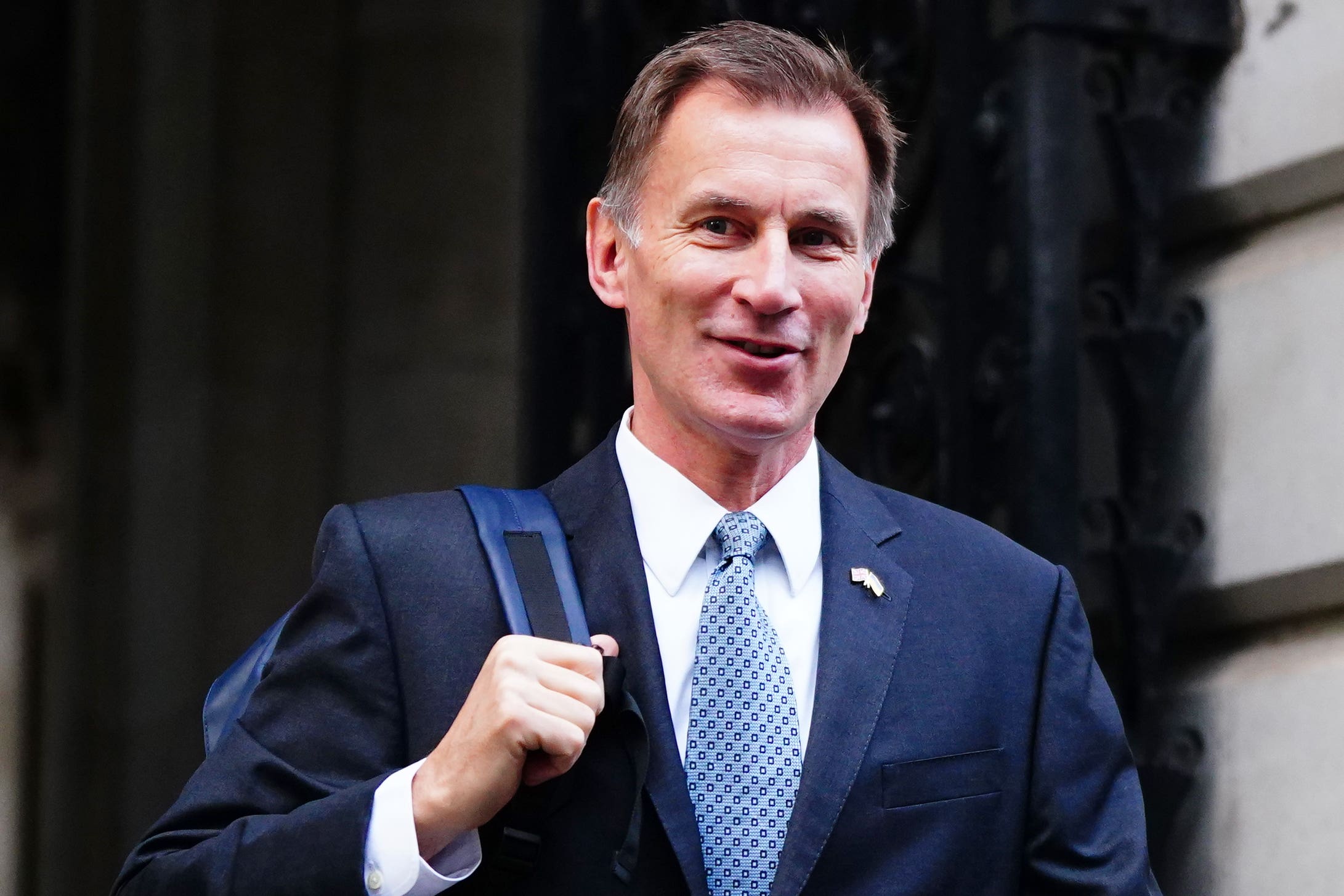Budget 2023: Pensions boost as Jeremy Hunt set to raise tax-free cap
Chancellor considering increase in lifetime allowance to reverse early retirement trend
Your support helps us to tell the story
From reproductive rights to climate change to Big Tech, The Independent is on the ground when the story is developing. Whether it's investigating the financials of Elon Musk's pro-Trump PAC or producing our latest documentary, 'The A Word', which shines a light on the American women fighting for reproductive rights, we know how important it is to parse out the facts from the messaging.
At such a critical moment in US history, we need reporters on the ground. Your donation allows us to keep sending journalists to speak to both sides of the story.
The Independent is trusted by Americans across the entire political spectrum. And unlike many other quality news outlets, we choose not to lock Americans out of our reporting and analysis with paywalls. We believe quality journalism should be available to everyone, paid for by those who can afford it.
Your support makes all the difference.Jeremy Hunt is understood to be ready to increase the tax-free allowance for pensions in a move to reverse the trend of early retirements.
The chancellor is looking at allowing workers to put more money into their pension pot before being taxed as part of Wednesday’s Budget, The Independent understands.
Mr Hunt is keen to bolster Britain’s workforce as he looks to deliver on the Rishi Sunak’s pledge of growing the UK’s stalling economy.
The current lifetime pension allowance (LTA) currently stands at £1.07m, meaning those with more in their personal pension pot incur tax after that threshold has been reached.
It is also understood that the Budget could see a wide pensions shake-up, with an increase in the annual allowance rate for pensions.
Reports suggest the amount each person can save each year before incurring tax is likely to rise from £40,000 to £60,000.
Reports differ about how much Mr Hunt could put the LTA up by. The Times said Mr Hunt would hike it to £1.8m, while The Telegraph said it could be set to more than £1.5m.
In his Bloomberg speech earlier this year, Mr Hunt vowed to consider fiscal measures that would help the over-50s who had taken early retirement during or after Covid to return to work.
Speaking in January, he said employment levels were lower than they were before the coronavirus pandemic by around 300,000 people.
Mr Hunt said: “So, to those who retired early after the pandemic, or haven’t found the right role after furlough, I say: Britain needs you. And we will look at the conditions necessary to make work worth your while.”
The pension lifetime allowance was first applied in 2006 when it was set at £1.5m. It rose to a peak of £1.8 million by 2012 before gradually being cut. It was due to stay at £1.07 million until 2026 but Mr Hunt could choose to bring a change forward.
Dubbed the “doctors tax”, the British Medical Association (BMA) has called the current LTA rate “punitive” and argued it has encouraged doctors to leave the profession. “This has resulted in large numbers of doctors retiring early or reducing their hours,” said the body.

In January, former pensions minister Baroness Altmann lobbied ministers to change “illogical” pension rules to help ease a workforce crisis in the NHS.
During a House of Lords debate, the Conservative peer said it meant that some doctors were “effectively paying to work for the NHS” and that the current system was “incentivising people not to work”.
The Treasury said it does not comment on Budget speculation.
It comes as the number of vacancies across the UK fell for the eighth month in a row as firms hold back on hiring amid woes in the wider economy.
The Office for National Statistics (ONS) revealed a 51,000 drop in the number of job vacancies to 1.12 million in the three months to February, while the redundancy rate edged higher.
The ONS said the rate of inactivity eased back to 21.3 per cent in the quarter to January from 21.5 per cent as more young people returned to work amid the cost-of-living crisis.
But Darren Morgan, director of economic statistics at the ONS, warned: “A record number of people were completely outside the labour market due to long-term sickness.”






Join our commenting forum
Join thought-provoking conversations, follow other Independent readers and see their replies
Comments